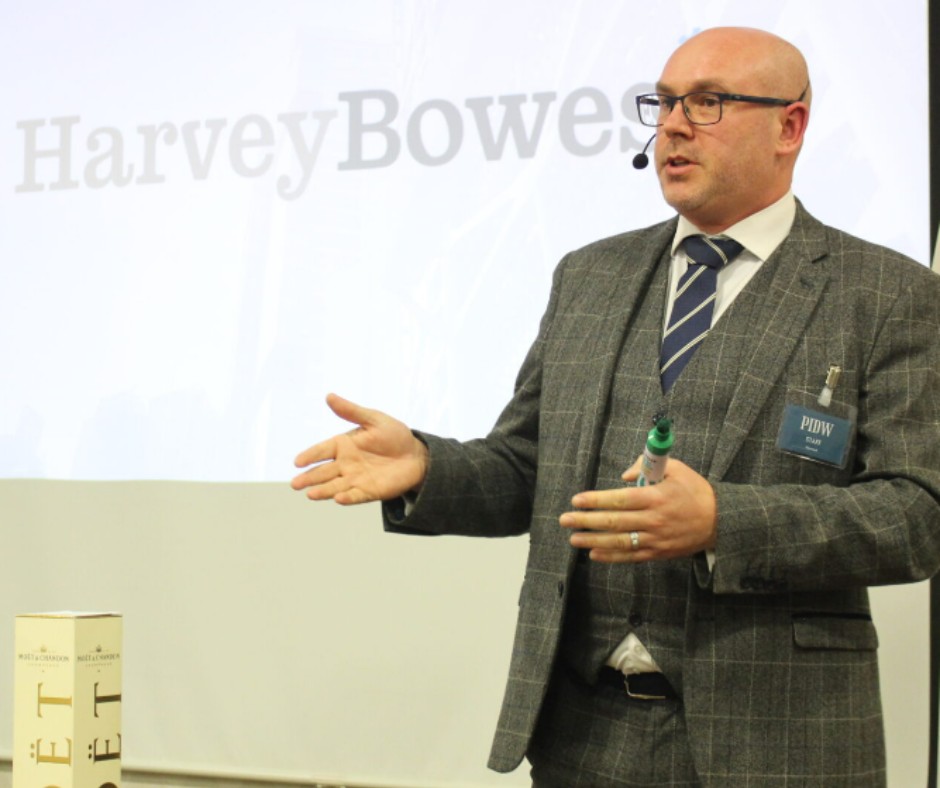SPRING is a time for renewal and a fresh start and that is no more applicable than in the property market.
First time buyers, movers, buy to let entrepreneurs and investors are in the market to secure the best deal available for their specific needs, says mortgage specialist Howard Bowes, of Newport-Based Harvey Bowes Financial Services.
The financial, mortgage and property services business is holding the first in a series a free to attend, mortgage clinics, at its offices in Bridge Street, Newport, from 10am-2pm on Saturday, March 25.
Seasoned property investor and award winning property finance broker Howard said: “The Harvey Bowes mortgage clinic is free to attend and open to anyone looking for up to the minute advice.
“It may be that people are concerned about their mortgage and any changes to rates. It may well be attractive to those starting out on the first rung of the property ladder and about to make their first purchase and in need of some advice on affordability. Attending our clinic is a chance to get some free advice from experts in the industry.
” The past year has created a lot of fear in the market in particular for those whose mortgage rates may be ending or for those who are looking at taking their first steps into property ownership. Our team can offer advice and support on mortgages, utility bills, general expenditure and affordability.”
Howard said financial markets have changed over recent months increasing the difficulty some mortgage applicants have in securing a deal.
“One of the primary reasons why applicants are denied a mortgage is due to their poor credit history. Lenders use credit scores to evaluate the risk of lending money to borrowers and a low credit score can make it difficult to qualify for a mortgage.
“Also if an applicant has a high debt-to-income ratio, it can indicate that they may have trouble making mortgage payments on time. Lenders typically prefer borrowers with a lower debt-to-income ratio.
“If an applicant’s income is not sufficient to meet the lender’s requirements, they may be denied a mortgage. Lenders typically require borrowers to have a stable and sufficient income to repay the loan.
“Another stumbling block can arise if the property being purchased is valued at less than the purchase price. This makes it difficult for the applicant to obtain a mortgage. Lenders typically only lend up to the appraised value of the property.
“Economic conditions can also impact an applicant’s ability to obtain a mortgage. If the economy is in a recession, lenders may be more cautious about lending money, making it harder for applicants to qualify for a mortgage.
“Mortgage applicants, especially first time buyers, can struggle to come up with the down payment required to purchase a home. Many lenders require a down payment, a deposit, of at least 20% of the home’s purchase price, which can be a significant amount of money for many people.
“The interest rate on a mortgage can have a significant impact on the monthly payment and the total cost of the loan over time. Applicants with lower credit scores or who have less favourable financial profiles, may be offered higher interest rates, which can make it more difficult to afford the mortgage repayments.”
Howard said seeking advice from a qualified mortgage advisor can help mortgage applicants to identify, and assist them to overcome, some obstacles to success.
Howard said: “A mortgage advisor has specialist knowledge and expertise in the mortgage industry. They can help applicants navigate the complex process of obtaining a mortgage, provide advice on the different types of mortgages available, and recommend lenders that are more likely to approve their application.
“A mortgage advisor can conduct a thorough financial assessment of the applicant’s income, expenses, credit score, and debt-to-income ratio to determine their eligibility for a mortgage. Based on the assessment, the advisor can recommend ways to improve their financial profile and increase their chances of being approved for a mortgage.
“The advisor has access to a wide network of lenders, including traditional banks, credit unions, and alternative lenders. They can help applicants find lenders that are more likely to approve their application and perhaps offer more favourable terms.
“A mortgage advisor can negotiate with lenders on behalf of the applicant to secure a better interest rate, lower fees, and more favourable terms. This can result in significant savings over the life of the loan. The advisor can also help an applicant to gather the necessary documentation and paperwork required.”
For more details visit www.harveybowes.co.uk
